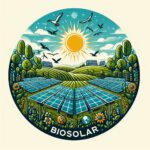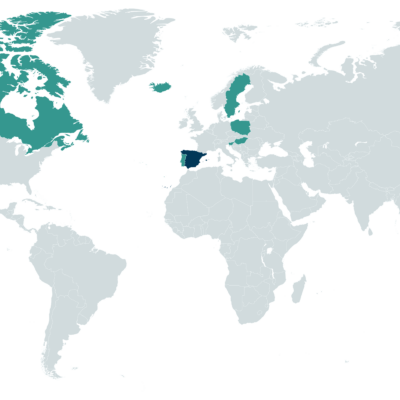
BioSolar – Solar farms: an opportunity to recover biodiversity in farmlands
Call
Duration
01/04/2025 – 31/03/2028
Total grant
Approx. 1.4 mil. €
More information
Francisco S. Tortosa
Francisco.tortosa@uco.es
Partners of the project
- Department of Zoology, Cordoba University, Cordoba, Spain
- Sustainable Finance Research Centre, Institute of Finance, Corvinus University, Budapest, Hungary
- Department of Biology and CESAM, University of Aveiro, Aveiro, Portugal
- Department of Zoology, Poznan University, Poznan, Poland
- Department of Finance, Concordia University, Montreal, Canada
- Department of Zoology, University of Ljubljana, Ljubljana, Slovenia
- Department of Business, Bifröst University, Borgarnes, Iceland
- Engineering and Sustainable Development, Gavle University, Gavle, Sweden
- Energy Projects, Gerenta Energia SLU, Fuengirola, Spain
- Enina – Environmental Consulting, Poznan, Poland
- Solar Installations, Tiscia Ltd., Poznan, Hungary

Context
The surge in global energy demand, coupled with the need to transition away from fossil fuels, has spurred the adoption of renewable energy sources, such as Photovoltaic Solar Panels. There is a need for green energy while considering social and supporting ecosystem services and conserving biodiversity. Most of the solar farms are installed on agriculture lands where the intensification of the crops produce an intensive negative effect on local biodiversity.
Main objectives
Unveiling the hidden potential of grasslands within solar Park is a pioneering initiative spanning Spain, Portugal, Poland, Sweden, and Hungary. Focused on NbS for biodiversity conservation and human well-being, the project explores how grasslands within solar farms may contribute to preserving biodiversity and soil quality across diverse climates.
The project seeks to unravel the intricate interplay between solar farms development and biodiversity, addressing key scientific objectives. The objectives include identifying suitable locations, assessing the cost-benefit implications, monitoring biodiversity including soil microbiota. Also we will study the local community’s perception. All together results will provide crucial information for policy makers about the costs and benefits of solar farms.
Main activities
BioSolar as an NbS adopts a multidisciplinary approach, integrating elements of landscape ecology, environmental sociology and the emerging field of biodiversity finance. It stands at the economy-environment nexus acknowledging the complex and multi-dimensional nature of grasslands within solar farms.
- Assess the impact of solar farms on different taxonomic groups in solar farms with a specific emphasis on grass communities, pollinators, vertebrates and soil quality;
- Assess societal acceptance of BioSolar given their perception of human-wellbeing. This is a trade-off between affordable energy, natural landscapes and food provision. We conduct focus groups and in-depth interviews, and assess changes to social attitudes following dissemination of information;
- Develop a framework for biodiversity finance. Measure risks and opportunities related to financial and sustainability impacts of solar projects on ecosystem services;
- Assess and develop funding mechanisms such as SRI investments, green and sustainability-linked bonds, and biodiversity credits.
We plan the exploitation of project results and the transfer of knowledge and technology to professionals, policymakers, and other relevant stakeholders through scientific publications, policy briefs, and stakeholder workshops. Additionally, we will collaborate with industry partners and renewable energy developers to integrate biodiversity considerations into solar farm planning and management practices. By engaging with policymakers at local, national, and international levels, we aim to influence the formulation of environmentally friendly policies supporting renewable energy and biodiversity conservation.

